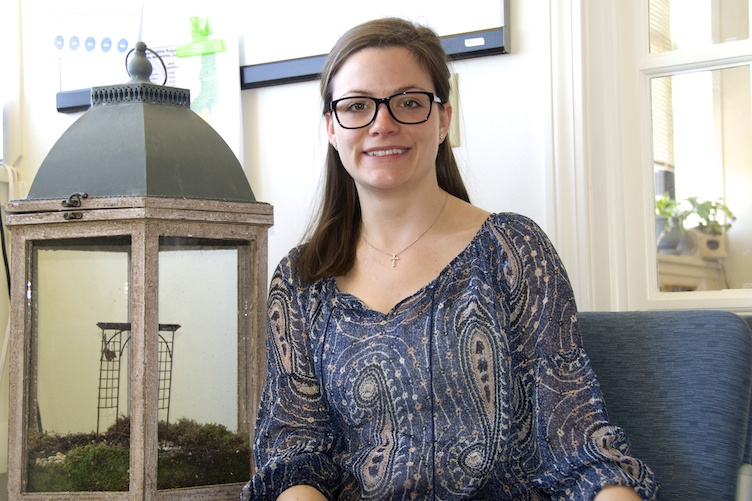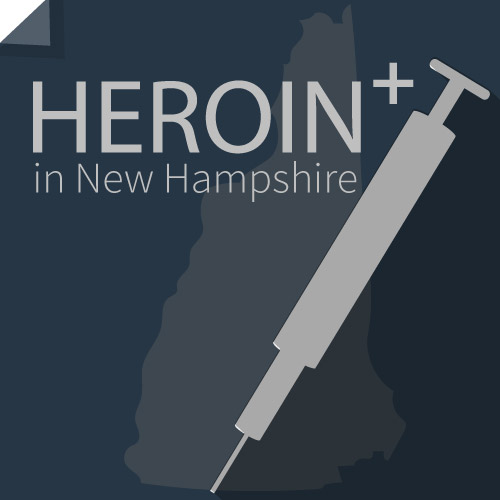
Courtney Gray ’14 J.D., ’15 MSW

It’s been called an epidemic, the staggering increase in the number of deaths from opioid drug overdoses in New Hampshire in recent years; 439 people died in 2015, and by the end of 2016, it’s predicted the number will reach nearly 480. This series looks at the crisis through the eyes of UNH alumni, faculty and students.
To fight addiction, the people in the trenches, the ones working in prevention, intervention, those providing treatment and support, need to be able to focus on their jobs and not on how to fill the gaping holes created by decreased funding and increased need.
In the Granite State, that’s where Courtney Gray ’14 J.D., ’15 MSW comes in. The executive director of the New Hampshire Alcohol and Other Drug Service Providers Association, Gray thinks about those issues all day long.
“All my passion comes from connecting with people. This job is a great match with my education,” says Gray, the first student to complete UNH’s J.D./MSW dual degree program, which is designed for individuals who plan a career that combines legal knowledge and social work. The program offers students a way to complete two graduate degrees in four years.
“All my passion comes from connecting with people."
“It has been really eye-opening,” Gray says. “There is a lot of great work being done, but there is still so much more to do.”
The NH Providers Association, as it is commonly known, is a membership organization that represents substance abuse service providers in advancing issues such as prevention, treatment and recovery throughout the state. Since starting with the Concord-based nonprofit in March, Gray has been touring public health facilities, meeting the 100-plus members working in the field, assessing their needs and trying to evaluate the gaps and barriers that exist in each region of the state.
Concerns range from helping with licensing issues for alcohol and drug counselors to connecting providers with third-party billing companies or, when legal questions arise, referring them to the Legal Action Center.
“There are lots of insurance questions because the landscape is changing. That’s causing hiccups,” Gray says. “We want to make sure that people are receiving treatment and that providers are getting reimbursed.”
Additionally, instances of substance abuse are growing, but the workforce isn’t, she says, a problem that is complicated by the stigma regarding addiction and the need for increased awareness in the medical profession.
Founded in 2004, the NH Providers Association grew out of a desire among alcohol and other drug service providers to have a voice in policy decisions affecting prevention and treatment and to offer members information and support.
Advocacy work tracks current legislation in such areas as Medicaid expansion — that now offers coverage for substance abuse treatment — marijuana legalization and decriminalization, best practices for substance misuse prevention, intervention, treatment and recovery, and insurance reimbursement and parity for behavioral health services.
NH Providers Association also offers training and educational opportunities for members, including an annual conference on substance abuse and behavioral healthcare issues.
And access to the Legal Center for questions related to legal issues specific to drug and alcohol treatment and prevention is free.
“Having my dual degree helps me navigate the legal and service landscapes, which helps providers to better be able to do their jobs," Gray says.
-
Written By:
Jody Record ’95 | Communications and Public Affairs | jody.record@unh.edu




















































